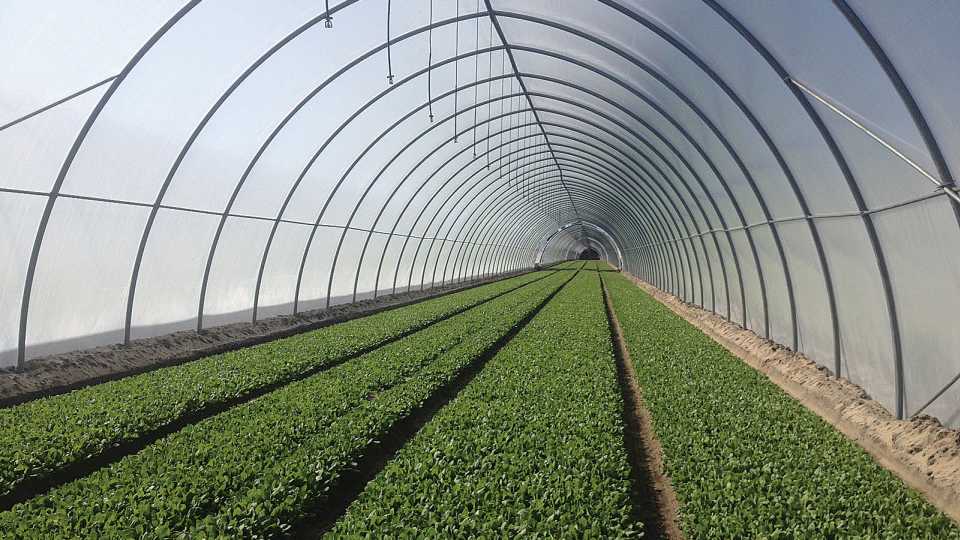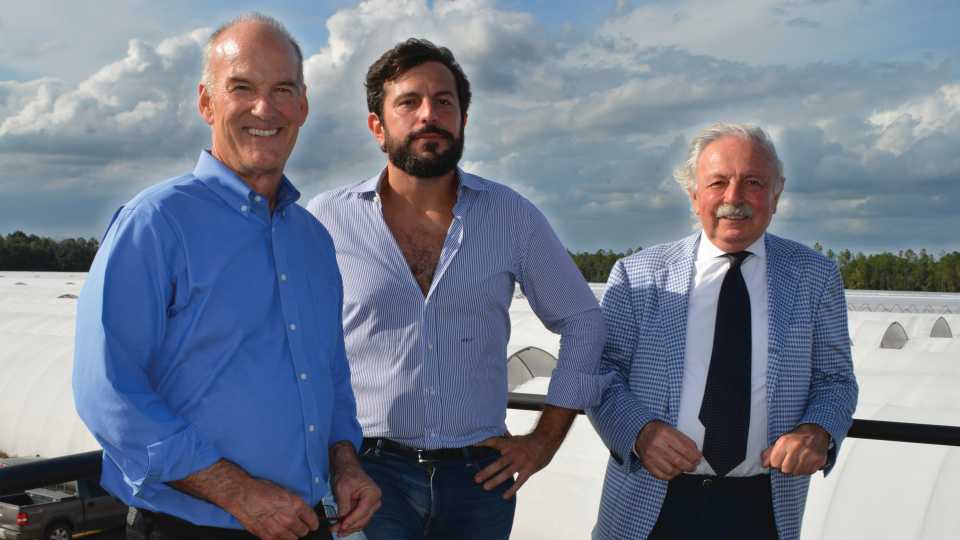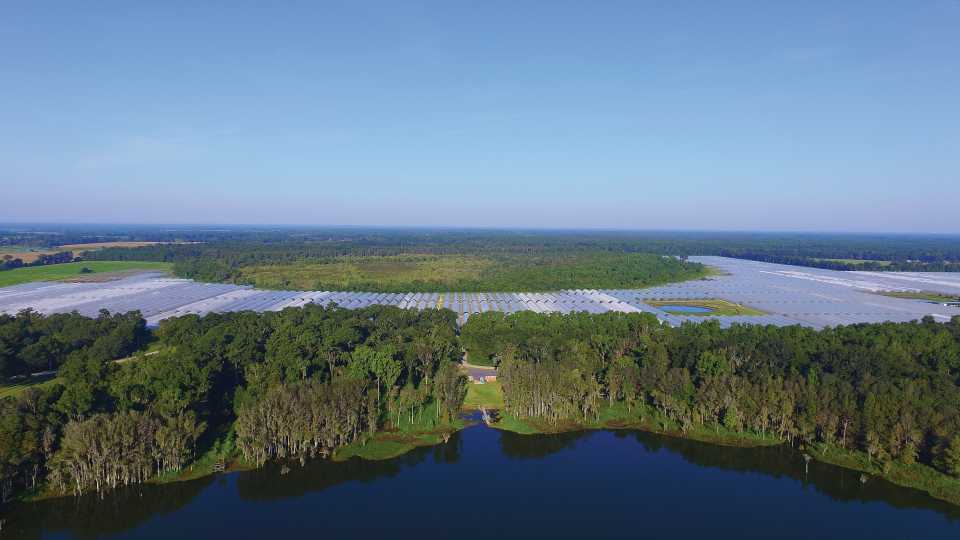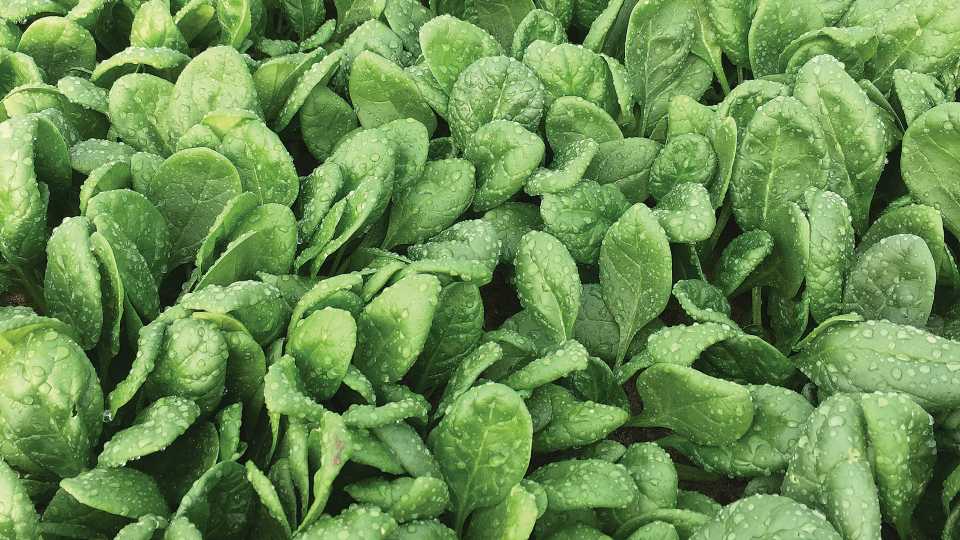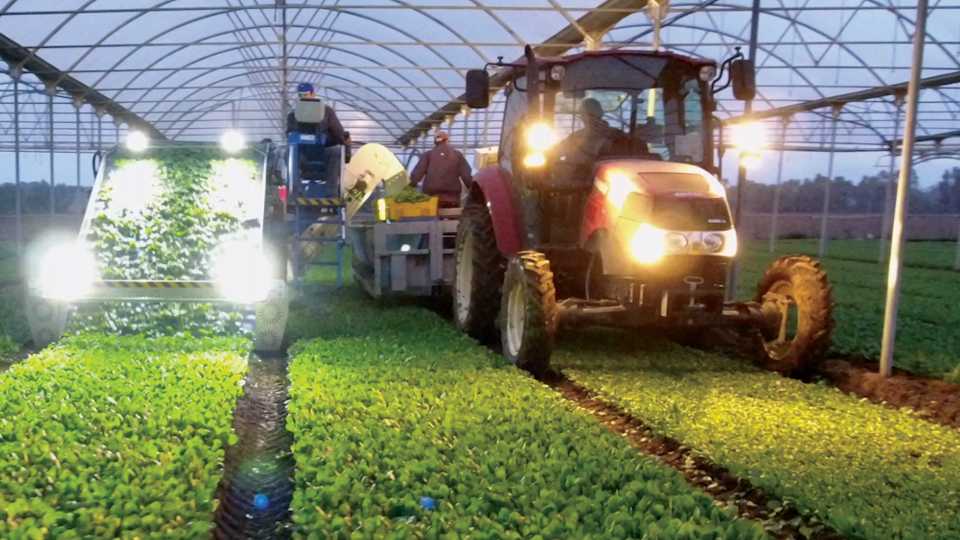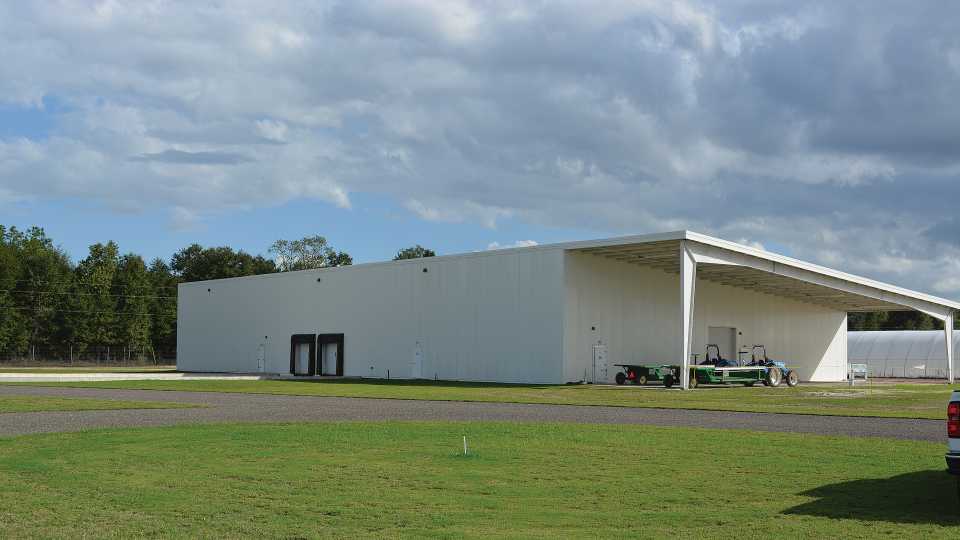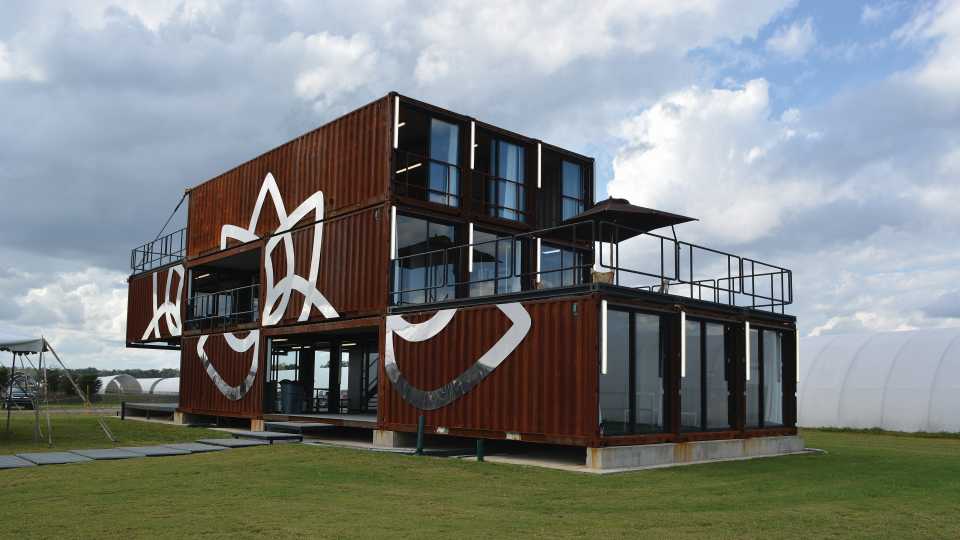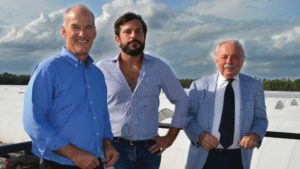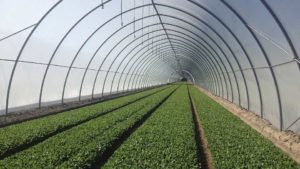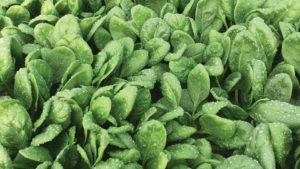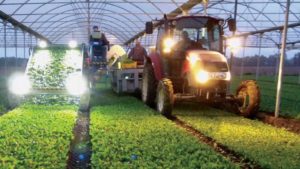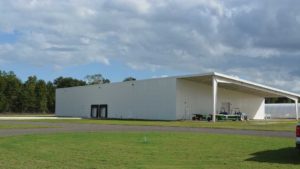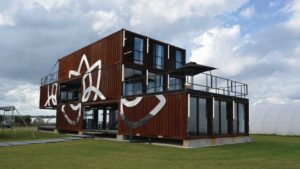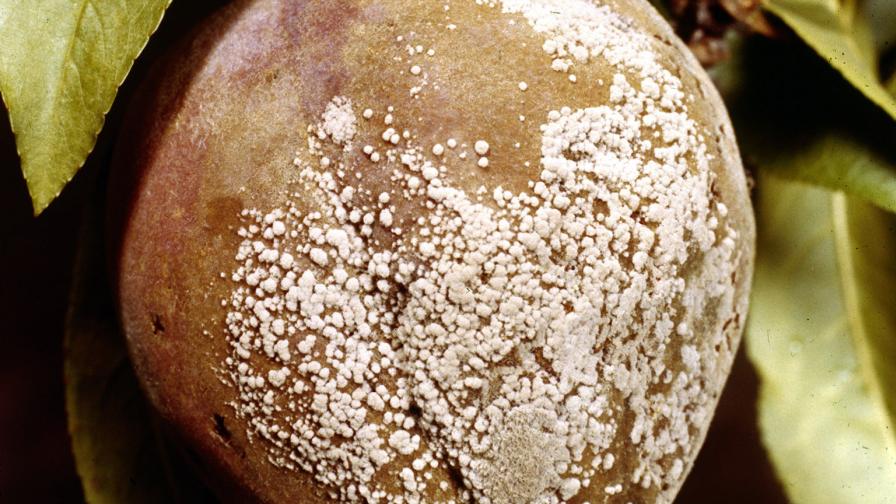New Venture Has Baby Leaf Greens Booming on the East Coast

The retail market for specialty vegetables moves at a fast pace driven by a demanding consumer base that has become accustomed to getting high-quality produce year-round. Those consumers want fresh, local product as well. Retailers have responded seeking growers who can supply those demands.
An East Coast supply of baby leaf greens, especially spinach, has been an area where there has been more demand than supply. A partnership between Italian-based Cultiva and the world’s largest vegetable grower/marketer Taylor Farms seeks to fill that void with the establishment of a high-tunnel farm in Jennings, FL.
Cultiva established the farm in 2016. The operation covers 150 acres under 800 tunnels of conventional production. Last year, 70 tunnels were added to test organic production under the system.
Cultiva’s Federico Boscolo is managing the farm. He says his family is proud of how quickly they brought the farm to fruition. His father Giancarlo knows the area from previous experience. He began growing radicchio in Georgia in the 1980s.
“I was at the Produce Marketing Association’s Fresh Summit in 2014 and met with Taylor Farms’ Leonard Batti,” Federico Boscolo says. “We began sketching out ideas on how to bring baby leaf production to the East Coast. We like Taylor Farms, because like our business, it is a very fast paced company. In less than a year from sketch on a notepad, we had a 15-tunnel test here in North Florida. Then the next year, we had 800 tunnels and a 20,000 square-foot cooler.”
At an open house reception in October, Bruce Tayor, founder of Taylor Farms, said he is proud of the Jennings farm.
“This is a fantastic operation, and we are excited to be partnering with the Boscolo family and look forward to growing and moving the operation up the coast [with future expansions]. From our perspective, the more we can produce locally on the East Coast to supply our processing facilities, the better.”
Solving a Problem
Baby leaf greens are soft, delicate plants and difficult to grow on the East Coast. That requires retailers to source much of it from California and Arizona. Boscolo says that high tunnels can mitigate the challenges of growing baby leaf on the East Coast.
Cultiva is one of the largest growers of fresh cut mixes in Europe. Much of that production is in protected culture.
“Growing baby leaf requires a lot of attention,” he says. “The weather in this part of the country really doesn’t help. In Italy, we have similar weather, so we brought our experience growing in high tunnels here. The tunnels protect us from hail and frost but, also very important, it protects us from heat.”
The protection from the cold and heat allows Cultiva to extend their season up to nine and 10 months. During the summer, the tunnels are painted white with a lime-based paint to reduce temperatures inside the tunnels and reduce solar radiation. As temperatures begin to cool in the fall, the white paint is washed off to promote warmth in the tunnels.
“With baby leaf spinach, we would have to stop production in April growing outside,” Boscolo says. “Under the tunnels, we can continue to grow the spinach from September until the beginning of June. We can continue to grow our arugula until the end of July.”
Innovation in the Field
Cultiva places an emphasis on developing and adopting innovative technology and practices. From precision bed preparation and seeding to mechanical harvest, the Jennings farm produces five to six crops in a season.
Boscolo says Cultiva collaborated with Italian-based equipment company (Gemini) to develop a harvester that has an on-board optical sorter that kicks out foreign debris on the go. The machine is 95% efficient in removing foreign debris as it harvests the crop.
The farm also utilizes a mist irrigation approach inside the tunnels to conserve water and manage fertilizer, which can be a challenge on the farm’s sandy soils. Soil moisture monitors also are utilized to optimize irrigation applications.
“We have a central pipe running along the center of the tunnel with sprinklers hanging from the arch,” Boscolo says. “The irrigation is so light it does not push the nutrients down out of the root zone. We don’t want the water to percolate any deeper than 5 inches. We do this with a mist-type irrigation and good soil preparation. We use a bed former that helps properly compact the first 5 inches of soil. The less water percolates down, the less fertilizer moves out of the root zone.”
Boscolo has worked with local UF/IFAS Vegetable Extension Agent Bob Hochmuth to fine tune the farm’s fertilizer program. They worked on applying the right source of fertilizer, timing, and placement on the sandy soils.
“The irrigation program is linked directly to the fertilizer program,” Hochmuth says. “We worked with them to optimize the irrigation events in terms of the duration of the applications of water and also the number of irrigation events to keep the nutrients in the right place.”
Continuity, Quality, Safety
Boscolo says one of the major goals of the East Coast baby leaf project is providing Cultiva’s customers continuity of supply. The farm plans future expansions in other locations to provide a 12-month supply of product.
Being on the East Coast, the product is fresher because of reduced transit times to points of sale. The farm also places an emphasis on properly cooling the baby leaf after harvest.
“Our 20,000 square-foot cooler is kept at 34°F,” Boscolo says. “We have two big rapid cooling rooms with a forced air system. The cooler is in the center of the farm, so as we harvest, we very quickly bring the harvested product to the cooler. We guarantee the product will be cooled down within one hour of being cut, which is an extremely good standard.”
Cultiva places an emphasis on food safety. An 8-foot deer fence surrounds the property, along with small animal netting to exclude wildlife. The high tunnels themselves also provide protection from animal contamination.
Boscolo says food safety is ingrained in the culture of Cultiva. “Everyone that works here from the tractor driver on understands what they do can effect food safety,” he says. “There are a lot of small things that make up a good food safety program and it must be something that everyone places the highest priority on.”
As the farm’s third season gets underway, Boscolo says he is most proud of his team that has gotten the operation up and running so quickly.
“We have really good people working here, and we started this farm from scratch working and learning together,” he says. “I am also very proud of our partnership with Taylor Farms. It is good for the American baby leaf industry to promote more locally grown product on the East Coast.”





